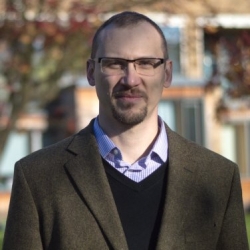March 17: Roman Sidortsov, Michigan Technological University
"Stranded Assets, Path Dependencies & Carbon Lock-in: Implications of Oil & Gas Development in the Russian, Norwegian and U.S. Arctic"
Co-sponsored by Dartmouth's Department of Russian and the Nelson A. Rockefeller Center for Public Policy and the Social Sciences
A video of this talk will be posted soon.
ABOUT THE SPEAKER
profile_cam_1.jpg

Dr. Roman Sidortsov currently serves as an Assistant Professor of Energy Policy at Michigan Technological University and Associate Editor of Energy Research and Social Science, and Senior Research Fellow in Energy Justice and Transitions at the Science Policy Research Unit of the University of Sussex. Dr. Sidortsov's past academic appointments include a Senior Global Energy Fellow and summer and distance learning programs faculty at Vermont Law School, an adjunct professor at the Marlboro College Graduate School, and an Assistant Professor at the Baikal State University of Economics and Law. Prior to transitioning to academia, Dr. Sidortsov practiced law in Russia as in-house counsel for an American non-profit organization and in the United States as a transactional attorney. Dr. Sidortsov's research focuses on international and comparative energy law and policy with a special emphasis on the Russian Federation and the United States, revitalization of post-industrial communities through sustainable energy development, energy security and justice, risk governance in the energy sector, and Arctic energy development. He received an interdisciplinary PhD in Polar Studies/Geography from the University of Cambridge (Churchill College), a bachelor's and master's degrees in law from Irkutsk State University in Siberia, Russia, and a Juris Doctor and an LL.M in Environmental Law from Vermont Law School.
ABOUT THE TALK
Oil and gas exploration and development continues at a fast pace despite near global recognition of the ongoing energy transition. Based on the historic production and yet to be confirmed estimates, the Arctic has become an increasingly coveted region for finding and developing new hydrocarbon resources. A number of factors make oil and gas development in the region an uncertain if not reckless enterprise. Among them are: legal and regulatory risks due to existing and prospective carbon controls; rapidly changing Arctic landscapes due to climate change subjecting oil and gas infrastructure to significant physical impacts; high capital costs needed to develop remote and challenging fields; and oil and gas price volatility. Some of these risks such as shut in oil wells due to thawed permafrost have already transformed into impacts affecting the ongoing oil and gas activities and resulting in damage to ecosystems. With accelerating physical and policy changes, expansive and costly oil and gas production, transportation, and processing facilities are on track to become stranded assets impacting the socio-economic fabric of Arctic communities and fragile Arctic ecosystems.
The presentation is based on an ongoing study which is part of a Horizon 2020 project "Toward Just, Ethical and Sustainable Arctic Economies, Environments and Societies" (JUSTNORTH). This study aims to answer the following research questions: (i) In what ways and to what extent do stranded asset risks arising in connection with energy projects in the Arctic unduly interfere with the ability of any person to acquire those basic goods to which he or she is justly entitled? and (ii) In what ways and to what extent do stranded asset risks arising in connection with energy projects in the Arctic violate a derivative right to the energy service? Comparative in nature, the case study will examine the ethics of decision-making behind and the impacts of the Goliat offshore oil project in Norway, the Yamal LNG project in Russia, and onshore oil production in the Prudhoe Bay field near Deadhorse, Alaska in the United States.